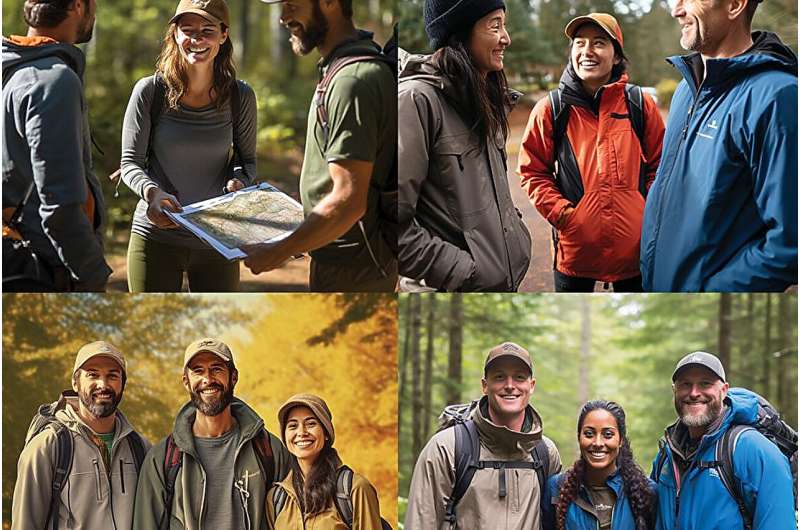This article has been reviewed according to Science X's editorial process and policies. Editors have highlighted the following attributes while ensuring the content's credibility:
fact-checked
trusted source
proofread
How will AI impact outdoor adventure education?

Educators working in the dynamic Adventure Education and Outdoor Learning (AEOL) field are trained to assess risks and respond. But are they ready for the fast-emerging impacts of AI?
"The main challenge is the way in which AI is growing and influencing our experiences of nature, of being a human and how we work—even in outdoor settings," Te Whare Wānanga o Waitaha | University of Canterbury (UC) outdoor and environment education senior lecturer Dr. Chris North says.
As associate editor of the Journal of Adventure Education and Outdoor Learning , Dr. North initiated a discussion about AI by inviting the editorial board and affiliates to provide insights from their diverse international contexts.
The resulting article, "The impact of artificial intelligence on adventure education and outdoor learning: international perspectives," adds to understanding of the global situation with contributors from Kenya, Brazil, Japan, Wales, England, Australia, Canada, New Zealand, Norway and the Netherlands.
"Educators and, in fact, all people need to be careful about the limitations of AI, but they can also benefit from this new and powerful tool," Dr. North says.
AI tools such as ChatGPT can plan expeditions, enhance experiences in nature, and create images and videos, however AI can't tell a reflective story of how an individual student experiences being in nature and the transformation in understanding that may occur.
"AI is not discerning in that it reflects the knowledge and information shared on the internet. It can therefore be biased, limited and superficial," he says.
UC's Head of the School of Teacher Education, Dr. Te Hurinui Karaka-Clarke discusses the danger of AI becoming "a digitized form of cultural appropriation."
"One of the issues surrounding the use of AI and Māori knowledges is that AI has unsolicited access to knowledge that is available in both public and private domains," Dr. Karaka-Clarke says.
"Māori iwi and hapū (tribes and sub-tribes) to whom the knowledge belongs have no way of controlling how their knowledges are used."
Knowledge could be used out of context and for purposes not originally intended, Dr. Karaka-Clarke says.
"My main concern is that outdoor leaders, students, and educators will end up being time poor, and because of this, use AI to generate local histories to share with others. This will mix and match different histories from different Indigenous groups, potentially even from around the world, to create a narrative of a place that is fictitious," he says.
"Unauthorized use jeopardizes the authenticity and integrity of Māori knowledge."
Other contributors examine how to prepare student-teachers who are likely to be teaching in a 'post-plagiarism world," how to contextualize AI among other technology embraced by the field, and how to become "AI literate' ahead of the technology curve.
While AI could "be a tool for democratizing AEOL" according to Kenyan academics Dr. Nkatha Muthomi and Dr. Gaita Njenga from Kenyatta University, Nairobi, "it is important to acknowledge that ChatGPT and other digital technologies cannot replace the real-life experiences of outdoor education, which involve physical communication with others and engage all senses. Each individual's outdoor experiences is unique, and AI cannot fully replicate the sensations of smell, touch, light, wind, and more."
More information: Chris North et al, The impact of artificial intelligence on adventure education and outdoor learning: international perspectives, Journal of Adventure Education and Outdoor Learning (2023). DOI: 10.1080/14729679.2023.2248302
Provided by University of Canterbury




















